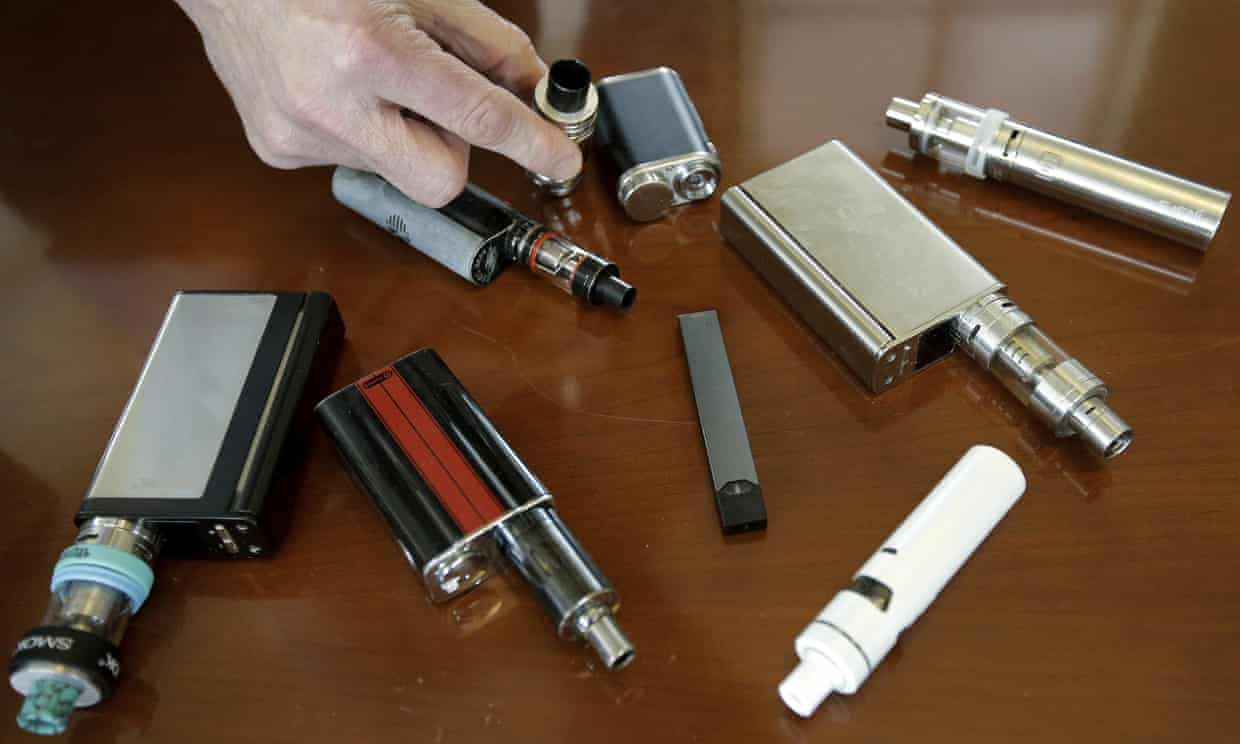
Opinion
How Juul gets kids addicted to vaping: it's even worse than you think
Massachusetts is suing the e-cigarette company for its predatory ads to children. Hopefully other states will follow suit
by Nancy Jo SalesWhen you read the lawsuit brought yesterday by the Commonwealth of Massachusetts against Juul Labs, claiming the e-cigarette company aggressively marketed its product to children and teens, you wonder if anyone at Juul ever thought to ask: “Gee, do you think anybody will find this marketing strategy unseemly?” Or even: “Do you think we could go to hell for this?”
In a statement, a spokesman for Juul, Austin Finan, said: “We do not intend to attract underage users.” But as a kid might say: “Sure, Jan.”
The allegations laid out in the lawsuit are compelling and thoroughly appalling. It claims that Juul created, for its 2015 launch, an advertising campaign designed to target the “cool crowd” among young people.
According to the lawsuit, the e-cigarette company hired young-looking models, photographed female models in “sexually provocative” poses, and purchased advertising space for these images on countless websites frequented by underage consumers, including cartoonnetwork.com, seventeen.com, and Nickelodeon’s nick.com and nickjr.com – sites where pre-schoolers play games.
Juul also purchased ads on a host of websites designed to help middle school and high school students with their homework, the lawsuit claims. “You’re doing your math homework and up pops an ad for Juul,” the Massachusetts attorney general, Maura Healey, said at a news conference this week. The company also sought to recruit celebrities and social media influencers with large numbers of underage followers, such as Miley Cyrus and Instagram influencer Luka Sabbat.
This isn’t the first time a company selling nicotine products has been accused of targeting children. Joe Camel, the cartoon mascot for Camel cigarettes, was the subject of a similar lawsuit, Mangini v RJ Reynolds Tobacco Company, in 1997. Under public pressure, RJR settled out of court and retired its 10-year-old Joe Camel logo. Research showed that, for kids, Joe Camel was as recognizable as Mickey Mouse. And this was only through the more limited advertising venues of the day, such as television, billboards and magazines.
The lawsuit against Juul underscores the degree to which the internet and social media have increased companies’ access to underage consumers. With kids on screens more than seven hours a day, according to a 2019 report from Common Sense Media, they are more available than ever to companies who want to influence them to buy their products, whether it be through entertainment websites, educational websites or social media platforms.
Juul’s marketing on Twitter proved especially effective. Almost 81% of Twitter users who followed the official Juul Twitter account were between the ages of 13 and 20, according to the lawsuit. Juul’s quarterly retail sales were “highly correlated with the number of Juul-related tweets that appeared on Twitter”.
Meanwhile, Juul circumvented the restrictions on Facebook and Instagram against paid advertisements for tobacco products, including e-cigarettes, by paying online publishers such as Gawker and UrbanDaddy to “promote youth-oriented advertising content for Juul through their social media accounts on Instagram, Facebook, and YouTube”, the lawsuit says.
Juul’s youth-focused marketing campaigns were extremely successful. By 2018, according to the lawsuit, the e-cigarette company had three-quarters of the US market; it made $3.3bn in US retail sales between 2018 and 2019. The company is now valued as high as $38bn.
Teen vaping has increased at such a staggering rate that some experts have described it as an epidemic. According to a 2019 survey by the National Institute on Drug Abuse, one in four US high school seniors have used e-cigarettes in the last 30 days, and one in nine seniors uses e-cigarettes on a daily or near-daily basis. A 2019 study published in the Journal of the American Medical Association found that 10.5% of US middle school students have used e-cigarettes in the past month.
Anti-tobacco advocates see Juul as the catalyst for this public health crisis, which comes after years of steady decline in nicotine use by teens. Matthew Myers, president of the Campaign for Tobacco-Free Kids, told Boston’s WBUR: “[Juul] figured out how to deliver nicotine more intensely, more rapidly, more deceptively to our young people than any company has ever done in history.”
Through the internet and social media, that is – between cartoons and children’s games.
- Nancy Jo Sales is a writer at Vanity Fair and the author of American Girls: Social Media and the Secret Lives of Teenagers
- This article was amended on 17 February 2020 to correct a misspelling of the name of Juul spokesman, Austin Finan.